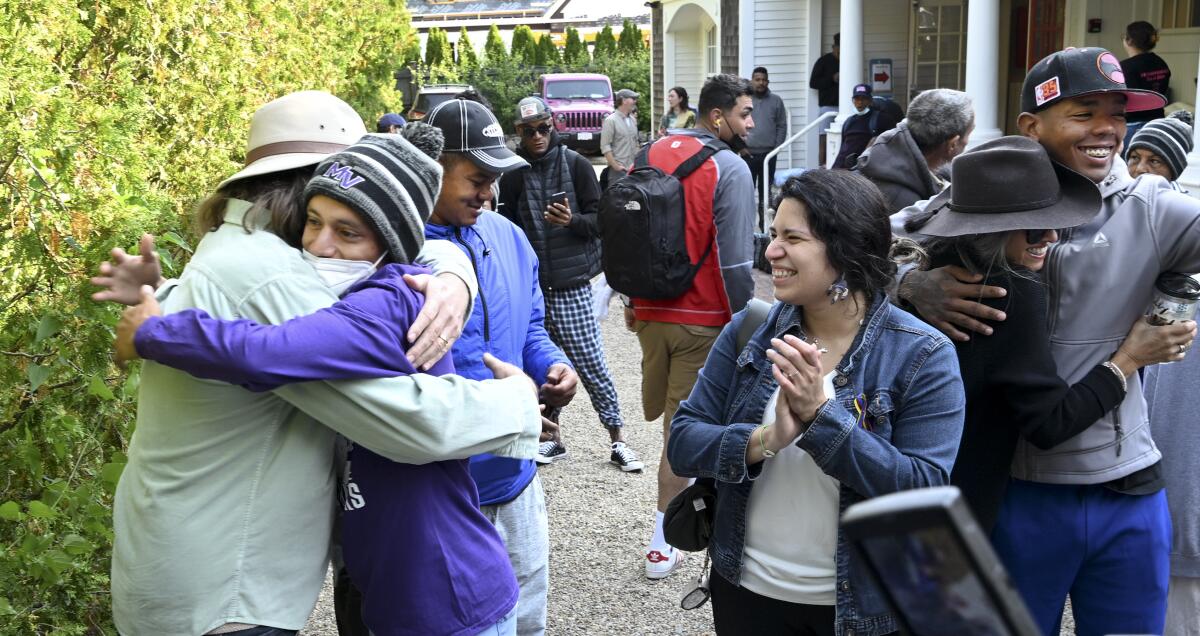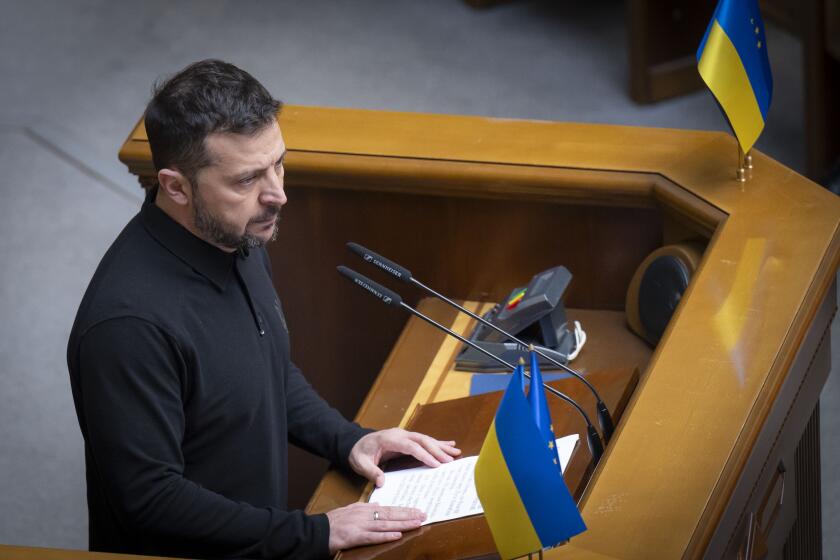Bused, flown migrants can live in U.S. â for now

Republican governors have been sending more migrants from the U.S. border with Mexico to Democratic strongholds, raising questions about how the newcomers are lured onto buses and planes, their legal status and the cost to taxpayers.
Florida Gov. Ron DeSantis last week flew about 50 Venezuelans to the upscale island of Marthaâs Vineyard in Massachusetts. Over the weekend, Texas Gov. Greg Abbott bused more migrants to Vice President Kamala Harrisâ home in Washington, D.C.
U.S. authorities are grappling with unusually large numbers of migrants crossing the border from Mexico. The administration said Monday that people from Venezuela, Cuba and Nicaragua accounted for more than 1 in 3 migrants stopped at the border in August.
Since April, Texas has bused about 8,000 migrants to Washington, 2,200 to New York and 300 to Chicago. The city of El Paso, Texas, has bused more than 1,100 to New York since Aug. 23. Arizona has bused more than 1,800 to Washington since May.
Are the migrants in the U.S. legally?
Yes, temporarily. Tens of thousands who cross the border illegally from Mexico are released in the United States each month with notices to appear in immigration court to pursue asylum or humanitarian parole and requirements to report regularly to immigration authorities. Migrants may seek asylum if they enter the country illegally under U.S. and international law, and U.S. authorities have broad authority to grant parole based on individual circumstances.
Migrants must keep a current address with authorities, who schedule appointments in the nearest city with a court or immigration office. Migrants must apply separately for permission to work.
It has been taking nearly four years on average for asylum cases to be decided in immigration court, according to the Biden administration, leaving migrants in a legal purgatory that shields them from deportation. The backlog in immigration courts has mushroomed to more than 1.9 million cases, according to Syracuse Universityâs Transactional Records Access Clearinghouse.
To avoid overcrowding in detention facilities, the administration began releasing migrants on humanitarian parole. The Border Patrol paroled nearly 250,000 migrants from August 2021 through June, including 40,151 in June, the latest figures released. In the previous seven months, it paroled only 11 migrants.
Were the relocated migrants kidnapped?
Kidnapping is a high legal threshold, but migrants flown to Marthaâs Vineyard say they were taken there on false pretenses. Migrants sign waivers that the transportation is free and voluntary.
DeSantis used a state program in which migrants who are deemed âunauthorized aliensâ can be moved âfrom Florida.â However, the governor has acknowledged that the flights originated in Texas and stopped in Florida before going to Marthaâs Vineyard. DeSantis has not emphasized that; instead, he maintains that the flights were a legitimate use of funds because the migrants otherwise would have aimed to go to Florida, though he offered no evidence.
Migrants who boarded the flights told the Associated Press that a woman who approached them at a San Antonio shelter promised jobs and three months of housing in Washington, New York, Philadelphia and Boston.
Doesnât the Biden administration bus and fly migrants around the country?
Yes, but under different circumstances. Like earlier administrations, it transports migrants between detention facilities, often on their way to being removed from the United States.
U.S. Immigration and Customs Enforcement made more than 4,800 domestic flights in the last year, including 434 in August, according to Witness at the Border. The top five destinations from March to August were Alexandria, La.; Phoenix; and Laredo, Harlingen and El Paso, Texas. ICE also buses many migrants.
The Department of Health and Human Services transports unaccompanied children to âsponsors,â who are often family, or to child-only detention facilities.
Did the cities ask to accept the migrants?
Republican-led states say they are sending migrants to âsanctuaryâ cities that welcome immigrants. While the definition of a sanctuary city is slippery, a sudden influx of migrants can test attitudes and limits of generosity.
Chicagoâs âWelcoming City Ordinanceâ prohibits asking people about their immigration status, denying services based on immigration status and disclosing information to federal immigration authorities.
New York limits cooperation with U.S. immigration authorities, partly by prohibiting police officers from participating in joint enforcement or by letting immigration agents work in city jails.
The six towns that make up Marthaâs Vineyard havenât issued âsanctuaryâ declarations. The Center for Immigration Studies, which advocates for restrictions, keeps a list of sanctuary jurisdictions, which, by its definition, limit cooperation with federal immigration authorities. The list includes Boston and seven other Massachusetts cities; none of the towns in Marthaâs Vineyard are on it.
How much is being spent to move migrants?
Texas has committed billions of dollars to Abbottâs âOperation Lone Star,â an unprecedented move into border security that includes the bus trips, prosecutions of border crossers for trespassing and a massive presence of state troopers and the National Guard.
The Florida Legislature allocated $12 million for its program for the current budget year.
El Paso, which last week contracted a private bus company at a cost of up to $2 million, plans to seek reimbursement from the federal government.
Associated Press reporters Don Babwin in Chicago; Anthony Izaguirre in Tallahassee, Fla.; and Sophia Tulp and Philip Marcelo in New York contributed to this report.
More to Read
Sign up for Essential California
The most important California stories and recommendations in your inbox every morning.
You may occasionally receive promotional content from the Los Angeles Times.










